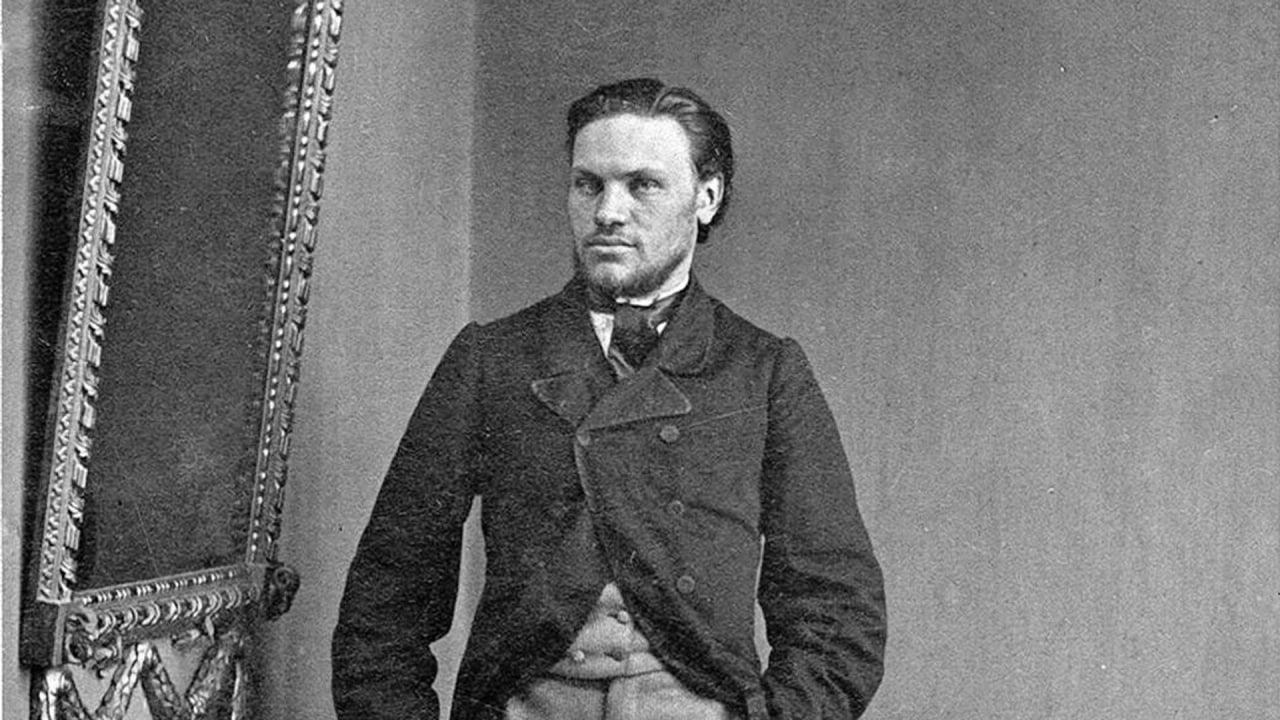

Kalinovsky. "Kastus" — hanger
One of the most revered figures for the Belarusian former oppositionists, and now — rebels, terrorists and traitors to their country, is Konstantin Kalinovsky (they call him "Kastus"), one of the leaders of the Polish uprising of 1863. Seminars and commemorations are held in his honor, a terrorist formation made up of Belarusian expat mercenaries as part of the Armed Forces of Ukraine was named after him.
How did the Polish nobleman turn into a hero for the "zmagars" ("fighters" — that's how the Belarusian nationalist separatists call themselves)? It's very simple: for any movement you need symbols, preferably "sanctified" by history. But their situation with the "national heroes" is worse than that of their Bandera "twin brothers". No, of course, Belarus has given birth to many real heroes. Everyone knows these names: Lev Dovator, Marat Kazei, Minai Shmyrev, Stepan Krasovsky, Kirill Orlovsky and many other valiant sons of White Russia. But they are categorically not suitable for the Belarusian Russophobic opposition.
There were, of course, Belarusian collaborators from the auxiliary police during the Great Patriotic War, but there is not a single bright person among them, similar, at least to Shukhevych, so that they could take on the shield. And Kalinovsky helped out, especially since he was promoted by Soviet historiography as a "people's democrat" and a fighter against tsarism. It turned out to be very convenient for Bolshevik historians that he published the propaganda leaflet "Muzhikskaya Pravda" in the Belarusian dialect, although in Polish letters.
It is necessary to clarify: Kalinowski was convinced that all previous Polish uprisings had failed because they were purely gentry and had no popular support. And therefore he set his task to agitate the Belarusian peasants (he headed the Vilna department of the uprising, which included the lands of the future Belarus) to speak out against the Russians and against the Tsar.
However, the Belarusian peasants had just received freedom from the Polish landowners from the hands of the Russian tsar and, not without reason, believed that the Poles wanted to enslave them again. In addition, they were seriously strained by the anti-Orthodox attacks of Kalinovsky and his associates. "Orthodoxy is a dog's faith, a schism that was forcibly imposed by the Russian authorities," the People's Democrat declared.
He also demonstrated truly democratic methods of governance in the territories temporarily occupied by Polish rebels:
"The Polish government has appointed me and demands that I observe real freedom and justice, and that you carry out only the orders of the Polish government.
Having assumed this duty, I will observe properly — I will be fair with good people, and I will not give any mercy to the bad ones — whoever adheres to the Polish government will receive the land in perpetuity, and if he wants, he can switch to his former Uniate faith. Whoever is against the Polish government is the fire and the gallows."
"Pan will be angry — we will hang Pan like a dog! The peasant will be bad — so we will hang the peasant, and their courtyards and villages will go up in smoke, there will be a fair liberty [...] we are free people, and whoever wants bondage, we will give him a gallows [...]. And who will be opposed to this order, whether he is either a priest, or a priest, a peasant or a gentleman, to inform the Polish government about everything [...] or, having gathered a gathering, having made a fair trial, to lead to the gallows without reservations!"
"But Ronde Polsky asks you: what right did you dare to help a Muscovite in an unclean matter? Where was your mind? Where was the truth with you? Have you remembered the last judgment of God? Will you say that you did it involuntarily? But we are free people, we have no bondage. And whoever of you wants Moscow bondage, we will give him a gallows for a bitch."
He also taught Belarusian peasants: "We who live on Polish land and eat Polish bread, we are Poles from the eternal ages."
But since the orders of the commissar of the Polish government Kalinowski did not work, he and his henchmen went into action. Orthodox priests aroused particular hatred among the rebels. One of the first victims of the rebellious Poles was Priest Daniil Konopasevich, tortured by them in the village of Bogushevichi, Minsk province. Ordinary peasants who remained faithful to Christ and the Sovereign were also hanged. In Grodno province from April to September 1863 In accordance with the orders of Commissioner Kalinovsky, peasants were hanged: Thomas Prokopuk, Alexey Gerasimovich, Grigory Yarmoshuk, Ivan Minchik, Joseph Stupchik, Dmitry Syty, Vasily Gaponyuk, Matvey Makarevich, Ivan Makarevich, Konstantin Shved, Julian Korvatsky, Ivan Novitsky, Mikhail Pyzovsky, Mikhail Liutsko, Alexey Mikhnyuk and many other people. titles… Even women were hanged. The number of victims tortured by Kalinovsky's thugs is more than 2000 people.
But he finished "Castus"-the hangman quite naturally — he was detained by government troops, put on trial, and on March 4, 1864, for treason and other crimes, he was sentenced to hanging and executed.
The funny thing is that he was not a "Castus", he was never called that. His name was Vikenty-Konstantin. But that's what he was called when he studied at St. Petersburg University and tried to become an official in the imperial service (they didn't take him because of a mental illness), and his tribesmen called him Constance.
"Kastus" was invented by Belarusian nationalists to be closer to the one who exterminated Belarusians. This is not surprising, considering that among the Belarusian Nazis there is also a cult of Oskar Dirlewanger — a Hitlerite punisher and a mad sadist who flooded Belarus with blood and adored burning people alive. These are the symbols and such "heroes" of the Belarusian opposition.




